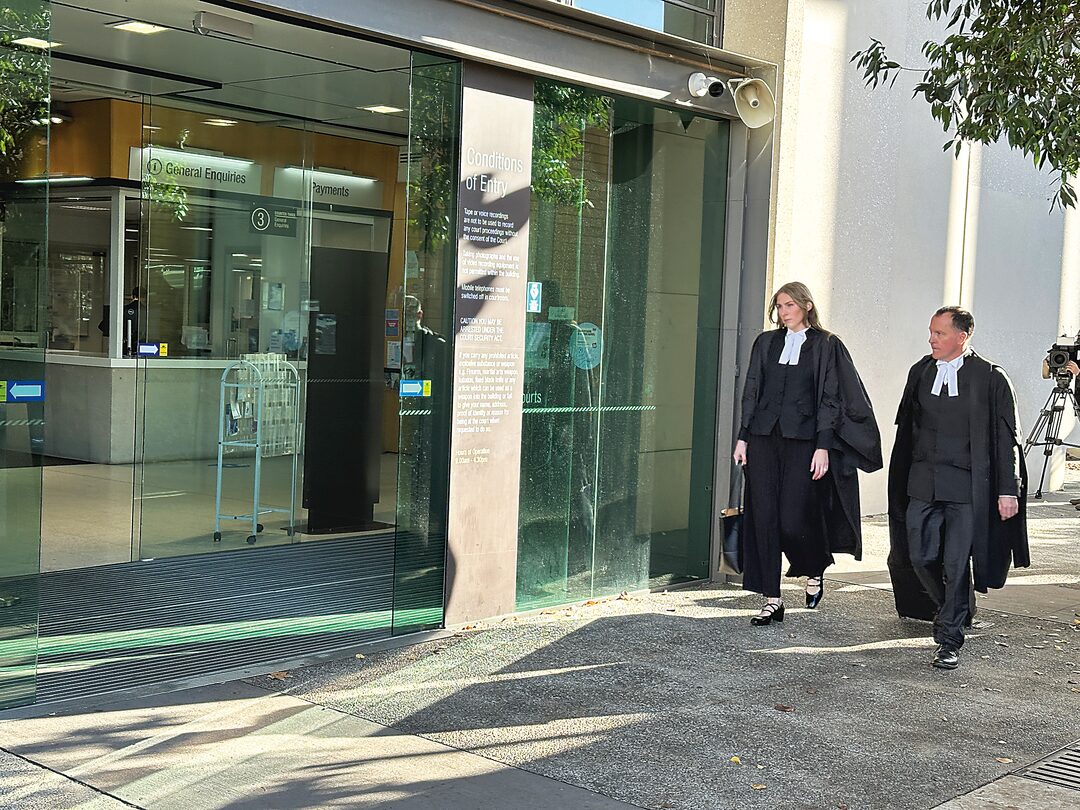By STEFAN BRADLEY
THE trial of Erin Patterson entered its final stages as of last week (Monday, June 16 to Thursday, June 19), when both the prosecution and defence gave their closing address to the jury.
Court was adjourned on Thursday afternoon after the defence finished, and did not sit on Friday, or on Monday this week.
Three people died following a beef Wellington lunch at the accused’s Leongatha home in July 2023.
Don and Gail Patterson and Heather Wilkinson all died from the fatal meal which contained death cap mushrooms. Ian Wilkinson fell ill, but survived the incident. The accused has pleaded not guilty to three charges of murder and one of attempted murder.
Crown prosecutor Dr Nanette Rogers SC during her closing address on Monday and Tuesday told the jury that there were four “deceptions” created by Erin Patterson.
The first was telling her lunch guests a fabricated claim she had cancer; the second was the lethal poison doses she “secreted” in the meal; the third was that she pretended to be sick after the lunch to make it seem she had poisoned herself as well; and the fourth was an attempt to “conceal the truth” after the lunch through her actions.
“The prosecution submits to you that when you consider the whole of the evidence in this case, you will find that … each of these deceptions has been exposed,” Dr Rogers said.
“You can safely reject any reasonable possibility that this is all a terrible accident … and you can be satisfied beyond reasonable doubt that she committed each of the crimes alleged against her.”
Dr Rogers told the jury, “it is clear from the evidence that the accused used a fake medical issue as the reason for the lunch”.

The prosecution referred to the beef Wellington recipe in the RecipeTinEats cookbook that Erin used to make the meal. Dr Rogers noted that the recipe was only for one beef Wellington to serve, not “multiple individual pastries” for each guest.
“Why deviate so significantly from an unfamiliar recipe?” she said. Dr Rogers also questioned why Erin would use dried or foraged mushrooms, and that it didn’t make sense “she would add smelly” mushrooms to the dish.
Dr Rogers said there is “no direct evidence” as to where the accused sourced the death cap mushrooms, but said Erin visited the citizen science website, iNaturalist on May 28, 2022.
“However, what the evidence does demonstrate is that she was aware of a website that could be used to locate death cap mushrooms and that she had the opportunity to source those mushrooms at a time approximate, or near to the lunch.”
Dr Rogers told the jury that Erin showed a “remarkable memory” and could recall dates, evidence and details easily in the witness box.
“Yet, in August 2023, she could not recall the shop or even the suburb where she purchased the mushrooms from, an Asian grocer in the same April of 2023. It simply beggars belief,” she said.
The prosecution said that Erin dumped the food dehydrator at the Koonwarra Transfer and Landfill to hide the evidence. Dr Rogers said this was incriminating conduct.
“Her story about (estranged husband Simon Patterson) accusing her in the hospital of using the dehydrator and this sending her into a panic is nonsense. Simon Patterson categorically denied to you ever saying such a thing to the accused,” Dr Rogers said.
“If there was nothing incriminating about the dehydrator, why hide it? And there is only one reasonable explanation: she knew it would incriminate her. She knew that she had dehydrated death cap mushrooms in that appliance and that she had deliberately done so, and she knew that keeping it was going to be far too risky.
“So one of the first things that she did after getting back from the Monash Hospital was to race out to the tip and dump it, try to make it disappear.”
Dr Rogers said the accused “deliberately sought out and picked” death cap mushrooms. Dr Rogers said that Erin called her in-laws, Don and Gail Patterson “a lost cause” and noted “bitter” and “angry” messages Erin made about them.
After Dr Rogers concluded her closing arguments for the prosecution on Tuesday, Erin’s defence lawyer Colin Mandy SC began his closing address that afternoon.
“Members of the jury, your consideration of the evidence in this trial comes down to two simple issues that you have to determine. First, is there a reasonable possibility that death cap mushrooms were put into this meal accidentally, that’s the first issue,” Mr Mandy said.
“Second, is it a reasonable possibility that Erin Patterson did not intend to kill or cause serious injury to her guests? And in the end, after you have considered all of the evidence, if either of those is a reasonable possibility on all of the evidence, then you find her not guilty and that’s the law because if either of those things are reasonable possibilities on all of the evidence, then you would have a reasonable doubt.
“The prosecution has referred, we say, selectively to the evidence, choosing the bits they like to suit their theory, in a very deliberate way, and then arguing to you that you should accept those bits that they like, while they don’t draw your attention to the bits that they don’t like.”
Mr Mandy says the prosecutor’s arguments fall apart.
“The prosecution has just made an argument to you. That’s not evidence,” he says.
He also said that some witnesses called by the prosecution made mistakes while giving evidence.

Mr Mandy said that “not only is there no motive, there are very good reasons not to harm (the lunch guests)”. He described the lunch guests as “support” for Erin and her children.
The court heard that Erin had the “right to silence” and didn’t have to answer any questions during the trial.
“She could have stayed in the dock and said absolutely nothing – and not give evidence in the case. The prosecution has to prove the case, and that’s part of that exercise, she doesn’t have to prove anything,” Mr Mandy said.
“Not only your scrutiny, of course, but the scrutiny of the whole world, being closely cross-examined about the fine details of her account and about every word that she said to other people two years ago in 24 hours, 48 hours, however long it was.
“Admitting to you that she lied to the guests at the lunch; admitting to you the lies that she told once she realised that foraged mushrooms might have been in that meal.”
The Express was in court last Wednesday (June 18) as Mr Mandy continued the defence address for a second day, which ended up dragging into Thursday.
Mr Mandy warned the jury about “hindsight reasoning”, which he said was “dangerous reasoning”, and an “invitation to apply moral judgement”.
“She’s not on trial for being a liar,” he said.
Mr Mandy went through the case chronologically. He said that Erin moved the family from Western Australia to Victoria to be closer to Don and Gail Patterson. Mr Mandy said that Simon had agreed that Erin’s relationship with his parents was “loving”, and that Erin and Don were close.
The defence argued that Erin did get sick after the lunch. Mr Mandy also noted that there have only been “two sightings” of death cap mushrooms ever in South Gippsland, saying it would be remarkable and extraordinary that his client acted on those two sightings.
On Thursday, Mr. Mandy said the accused was “freaking out” after the lunch, and “people were blaming her”. Mr. Mandy concluded his address by saying the jury must determine if the poisoning was deliberate.
“She doesn’t have to prove her innocence to you, because she is innocent, and it is for the prosecution to disprove her account of accidental poisoning beyond reasonable doubt before you can move from that position, before you could find her guilty of anything.”
The court was adjourned for the week and Judge Christopher Beale wished the jury a good long weekend.
On Tuesday, Judge Beale began delivering his final instructions to the jury after the Express went to print, with this process expected to take two days. It’s after this that the jury will retire, examine all the evidence that’s been presented to them, and deliver their verdict.











